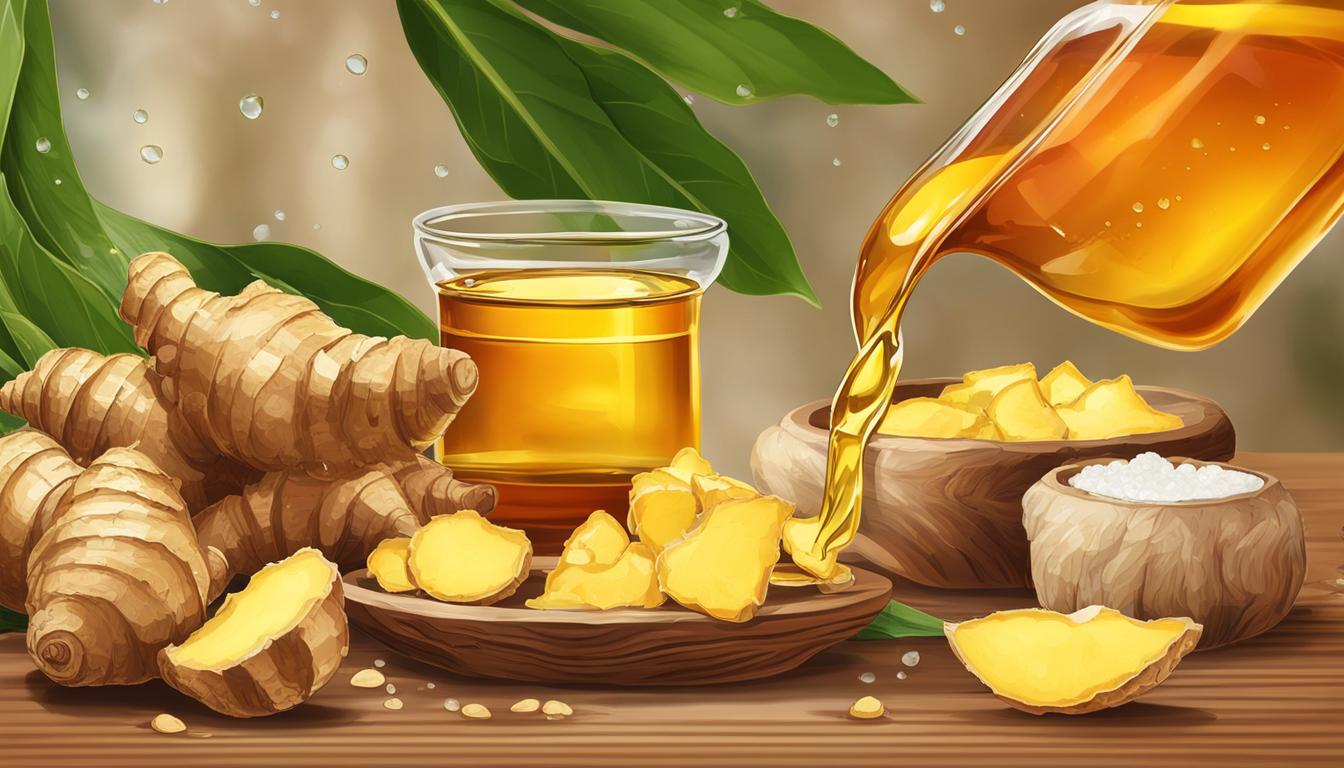
Ginger has been used in traditional medicine for thousands of years due to its abundance of healing properties. It is considered the “universal medicine” in Ayurvedic medicine.
Ginger is known to have therapeutic properties that can improve various health conditions. It is commonly used in plant therapy to address stomach concerns such as bloating, cramps, nausea, and gas. Ginger also promotes increased circulation, helps with joint and muscle discomfort, and provides relief from headaches and inflammation. Additionally, ginger can be beneficial for skin concerns, nervous tension, and mental clarity. It is a versatile plant remedy that offers comfort and support for overall well-being.
Key Takeaways:
- Ginger has been used in traditional medicine for thousands of years and is known for its healing properties.
- In plant therapy, ginger is commonly used to address stomach concerns, improve circulation, and provide relief from pain and inflammation.
- Ginger can also be beneficial for skin concerns, nervous tension, and mental clarity.
- Ginger is a versatile plant remedy that offers comfort and support for overall well-being.
- Plant therapy utilizes ginger in various forms, including ginger essential oil and CO2 extract.
The Benefits of Ginger Essential Oil in Plant Therapy
Ginger essential oil is highly valued in herbal medicine for its numerous benefits. It shares similar therapeutic properties with the ginger herb, but the essential oil is considered more potent due to its higher gingerol content.
Ginger essential oil is widely used in traditional medicine to address various health issues. It is particularly beneficial for stomach and digestive issues, providing relief from upset stomachs, bloating, and cramps.
The oil also boosts circulation, which helps to warm cold and stiff joints and relax overworked or tired muscles. Additionally, ginger essential oil is known for its positive effects on menstrual symptoms, headaches, inflammation, and skin concerns.
It can also help alleviate nervous tension and promote mental clarity. Ginger essential oil is a powerful tool in plant therapy, offering natural and effective support for overall wellness.
The Versatility of Ginger Essential Oil
One of the key advantages of ginger essential oil in plant therapy is its versatility. It can be used in various ways to address different health concerns. For digestive issues, ginger essential oil can be diluted and applied topically to the abdomen or diffused for inhalation.
It can also be added to massage oils or creams to ease joint and muscle discomfort. In aromatherapy, ginger essential oil can be diffused to promote mental clarity and reduce feelings of nervous tension.
The warming properties of the oil make it ideal for relaxation and comfort. With its wide range of applications, ginger essential oil offers a holistic approach to well-being.
Using Ginger Essential Oil Safely
While ginger essential oil is generally safe for use, it is important to take certain precautions. It should always be diluted with a carrier oil before applying to the skin to avoid sensitization or irritation.
The recommended dilution ratio is typically 1-2% for adults. It is also important to avoid contact with the eyes, inner ears, and other sensitive areas. Ginger essential oil should not be ingested unless under the guidance of a qualified healthcare professional.
Pregnant women, nursing mothers, and individuals with specific health conditions should consult with a healthcare provider before using ginger essential oil. By following these safety guidelines, ginger essential oil can be enjoyed safely and effectively as part of a plant therapy routine.
| Benefits of Ginger Essential Oil | Methods of Use | Safety Precautions |
|---|---|---|
| Relieves stomach and digestive issues | Topical application, inhalation | Dilute before use, avoid contact with sensitive areas |
| Reduces joint and muscle discomfort | Massage, topical application | Dilute before use, avoid contact with eyes |
| Alleviates menstrual symptoms | Topical application, inhalation | Consult healthcare professional, dilute before use |
| Provides relief from headaches and inflammation | Inhalation, topical application | Dilute before use, avoid ingestion |
| Promotes mental clarity and reduces nervous tension | Inhalation, aromatherapy | Dilute before use, avoid sensitive areas |
Different Types of Ginger Oil for Plant Therapy
Ginger oil is a versatile plant remedy that offers a wide range of benefits for overall well-being. Plant Therapy offers three different types of ginger oil for plant therapy, each with its own unique characteristics and properties.
Ginger Root CO2 Extract
The Ginger Root CO2 Extract is a popular option with a fresh, warm, and spicy aroma. It is obtained through the CO2 extraction method, which results in a more complex and aromatic scent compared to steam-distilled ginger oil.
This extraction method also gives it a different chemical profile and requires a higher dilution ratio. The Ginger Root CO2 Extract is known for its abundance of healing properties and offers support for various health concerns.
Organic Ginger Root CO2
The Organic Ginger Root CO2 is the organic version of the Ginger Root CO2 Extract. It is USDA certified organic and offers the same benefits as the non-organic option. This organic variation ensures that you are using a high-quality ginger oil without any GMOs or synthetic fertilizers. The Organic Ginger Root CO2 is a natural and effective option for plant therapy.
Ginger Essential Oil
The Ginger Essential Oil is steam-distilled and has a light, earthy, and spicy aroma. It is a versatile oil that provides a wide range of support for overall well-being.
Ginger essential oil is highly valued in plant therapy for its therapeutic properties. It is particularly beneficial for addressing stomach and digestive issues, promoting circulation, relieving muscle discomfort, and supporting menstrual symptoms.
The Ginger Essential Oil is a must-have for those looking to incorporate ginger oil into their plant therapy routines.
| Type of Ginger Oil | Aroma | Extraction Method | Benefits | Safety |
|---|---|---|---|---|
| Ginger Root CO2 Extract | Fresh, warm, and spicy | CO2 extraction | Complex aroma, versatile healing properties | KidSafe, Pregnancy Safe, Nursing Safe, and Pup & Pony Safe |
| Organic Ginger Root CO2 | Fresh, warm, and spicy | CO2 extraction | Same benefits as non-organic option, USDA certified organic | KidSafe, Pregnancy Safe, Nursing Safe, and Pup & Pony Safe |
| Ginger Essential Oil | Light, earthy, and spicy | Steam distillation | Versatile support for overall well-being | KidSafe, Pregnancy Safe, Nursing Safe, and Pup & Pony Safe |
Natural Remedies with Ginger in Plant Therapy
Ginger oil is a versatile and natural remedy that can be incorporated into plant therapy routines to address various health concerns. One popular way to use ginger oil is by adding a drop of Organic Ginger Root CO2 to a warm bath.
This ginger bath soak can help stimulate circulation, relieve aches and pains, and provide a mental boost. Whether used in the morning to energize or in the evening to relax, a ginger bath soak offers a soothing and invigorating experience.
Another way to incorporate ginger oil into plant therapy is by creating a car sickness diffuser blend. This blend can be made by combining ginger oil with other essential oils known for their stomach-calming and energizing properties, such as peppermint or lemon.
Using this blend in a portable diffuser while driving can help alleviate symptoms of motion sickness and provide a refreshing scent in the car.
Ginger oil can also be used to create a cramp relief rub for menstrual discomfort. By combining ginger oil with a carrier oil, such as jojoba or coconut oil, and applying it to the abdomen, the rub can help soothe muscle cramps and provide relief during menstruation. This natural alternative offers a gentle and comforting approach to managing menstrual discomfort.
Ginger Oil Plant Therapy Applications
| Application | Benefits |
|---|---|
| Ginger Bath Soak | Stimulates circulation Relieves aches and pains Provides a mental boost |
| Car Sickness Diffuser Blend | Calms upset stomachs Energizes the senses Alleviates motion sickness |
| Cramp Relief Rub | Soothes muscle cramps Provides relief during menstruation |
These are just a few examples of how ginger oil can be utilized in plant therapy to provide natural remedies for various health concerns. Whether through a relaxing bath soak, a refreshing diffuser blend, or a comforting rub, ginger oil offers a holistic approach to supporting overall well-being.
Ginger Oil Product Details and Safety Information
Ginger oil is available in different variants, each with its own unique characteristics. Plant Therapy offers the Ginger Root CO2 Extract, Organic Ginger Root CO2, and Ginger Essential Oil for plant therapy. These oils undergo independent third-party testing to ensure purity and quality. Let’s take a closer look at each variant:
Ginger Root CO2 Extract
The Ginger Root CO2 Extract is a popular option. It has a fresh, warm, and spicy aroma that adds complexity to its scent. This oil is obtained through the CO2 extraction method, resulting in a rich and aromatic profile. It requires a higher dilution ratio compared to other ginger oils.
Organic Ginger Root CO2
The Organic Ginger Root CO2 is the organic version of the Ginger Root CO2 Extract. It is USDA certified organic and does not contain any GMOs or synthetic fertilizers. This variant offers the same benefits as the non-organic option, ensuring a natural and pure experience.
Ginger Essential Oil
The Ginger Essential Oil is steam-distilled and has a light, earthy, and spicy aroma. It is a versatile oil that provides support for overall well-being. This variant is known for its therapeutic properties and can be seamlessly incorporated into various plant therapy routines.
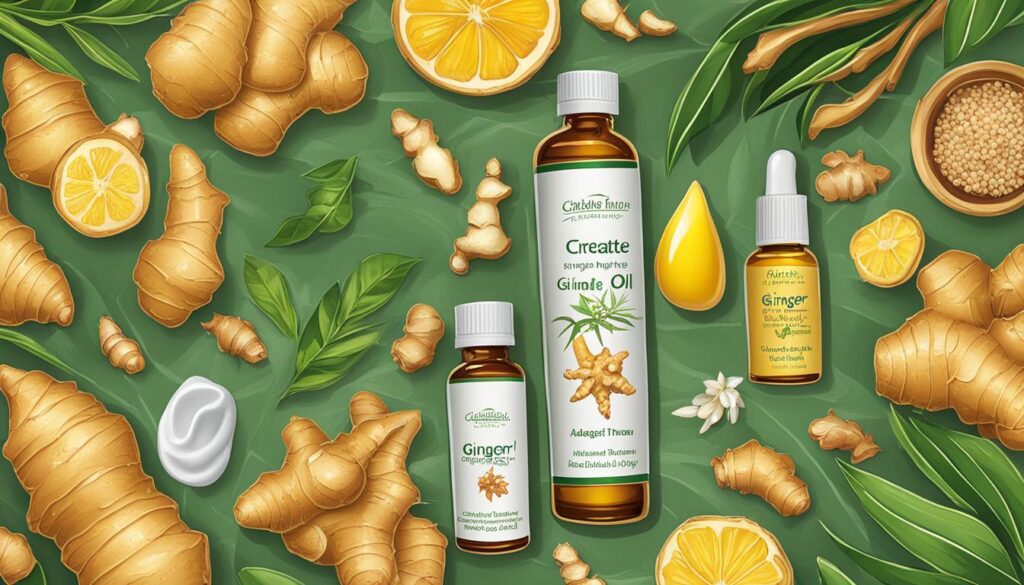
When using ginger oil, it is important to follow safety guidelines. Ginger oil should be diluted in a carrier oil before applying it to the skin, and it should be kept away from the eyes and mucous membranes.
These oils are for external use only and should not be taken internally. It is crucial to consult a qualified medical professional before using ginger oil for any specific health condition.
| Ginger Oil Variant | Aroma | Extraction Method | Certifications |
|---|---|---|---|
| Ginger Root CO2 Extract | Fresh, warm, and spicy | CO2 extraction | – |
| Organic Ginger Root CO2 | Fresh, warm, and spicy | CO2 extraction | USDA certified organic |
| Ginger Essential Oil | Light, earthy, and spicy | Steam-distillation | – |
By understanding the product details and safety information of ginger oil variants, you can make informed decisions about incorporating them into your plant therapy routines.
Uses and Effects of Ginger Essential Oil in Plant Therapy
Ginger essential oil is a versatile and valuable tool in plant therapy, offering a range of uses and effects for overall well-being. One of its primary benefits is in calming upset stomachs and alleviating digestive issues.
The warming properties of ginger essential oil can help to ease discomfort, reduce bloating, and promote healthy digestion. Whether it’s a case of indigestion, nausea, or general stomach discomfort, ginger essential oil can provide natural relief.
In addition to its digestive benefits, ginger essential oil is known for its ability to support a healthy immune system. With its anti-inflammatory and antioxidant properties, ginger oil can help to strengthen the body’s natural defense mechanisms and reduce the risk of illness.
Incorporating ginger essential oil into your plant therapy routine can provide a natural boost to your immune system, helping you stay healthy and resilient.
Another remarkable effect of ginger essential oil is its ability to warm and relax muscles. Whether you’re dealing with muscle soreness, tension, or discomfort, ginger oil can help to ease these issues.
The warming properties of the oil increase blood flow to the muscles, promoting relaxation and relieving muscle pain. By incorporating ginger essential oil into your plant therapy routine, you can enjoy the soothing and comforting effects on your muscles.
- Ginger essential oil is effective in calming upset stomachs and alleviating digestive issues.
- It supports a healthy immune system with its anti-inflammatory and antioxidant properties.
- Ginger essential oil has warming properties that can relax and soothe muscles.
With its numerous uses and effects, ginger essential oil is a valuable addition to any plant therapy routine. Whether you’re looking to calm an upset stomach, boost your immune system, or relax your muscles, ginger essential oil can provide natural and effective support for your overall well-being.
Safety Precautions and Cautions for Ginger Essential Oil
Ginger essential oil offers numerous benefits in plant therapy, but it’s important to prioritize safety and follow guidelines for its use. Here are some important precautions to keep in mind when using ginger essential oil:
- External use only: Ginger essential oil should only be used externally and should not be ingested unless under the supervision of a qualified medical professional. This ensures safe and appropriate use of the oil.
- Dilution guidelines: It is essential to dilute ginger essential oil in a carrier oil before applying it to the skin. The maximum recommended dilution for topical applications is 1%. Dilution helps prevent skin irritation and sensitivity, ensuring a safer experience.
- Caution with sensitive areas: Avoid contact with the eyes and mucous membranes when using ginger essential oil. If accidental contact occurs, rinse thoroughly with water and seek medical attention if necessary.
- Keep out of reach of children: Ginger essential oil should be stored out of reach of children to prevent accidental ingestion or misuse.
- Discontinue use if irritation occurs: If you experience any skin irritation or sensitivity after using ginger essential oil, discontinue use immediately and consult a healthcare professional if necessary.
- Consultation during pregnancy, nursing, or under medical care: If you are pregnant, nursing, or under the care of a doctor, it is recommended to consult with a healthcare professional before using ginger essential oil to ensure its safety for your specific situation.
Following these safety precautions will help you enjoy the benefits of ginger essential oil while minimizing the risk of adverse reactions. It’s always best to use essential oils responsibly and with knowledge of their potential effects.
Shelf Life, Country of Origin, and Additional Information
When incorporating ginger oil into your plant therapy routine, it’s important to consider its shelf life and country of origin. The shelf life of ginger oil can vary depending on the type and quality, typically ranging from 1 to 4 years.
This is important to note as using expired oil may not provide the desired therapeutic benefits. To ensure optimum freshness and efficacy, it’s recommended to check the expiration date before use.
As for the country of origin, ginger oils can be sourced from various regions such as Sri Lanka, India, Germany, Indonesia, or Nigeria. Each region may have its own unique growing conditions and cultivation practices, which can influence the aroma and therapeutic properties of the oil.
It’s worth exploring different ginger oils to discover the nuances and characteristics that resonate with your preferences and needs.
Furthermore, when purchasing ginger oil, it’s essential to consider additional information provided by the supplier. For example, the ginger oils offered by Plant Therapy are free from fillers, phthalates, and synthetic fragrances.
They undergo rigorous third-party testing to ensure purity and quality. This level of transparency and commitment to product integrity can provide reassurance and confidence when using ginger oil in your plant therapy practices.
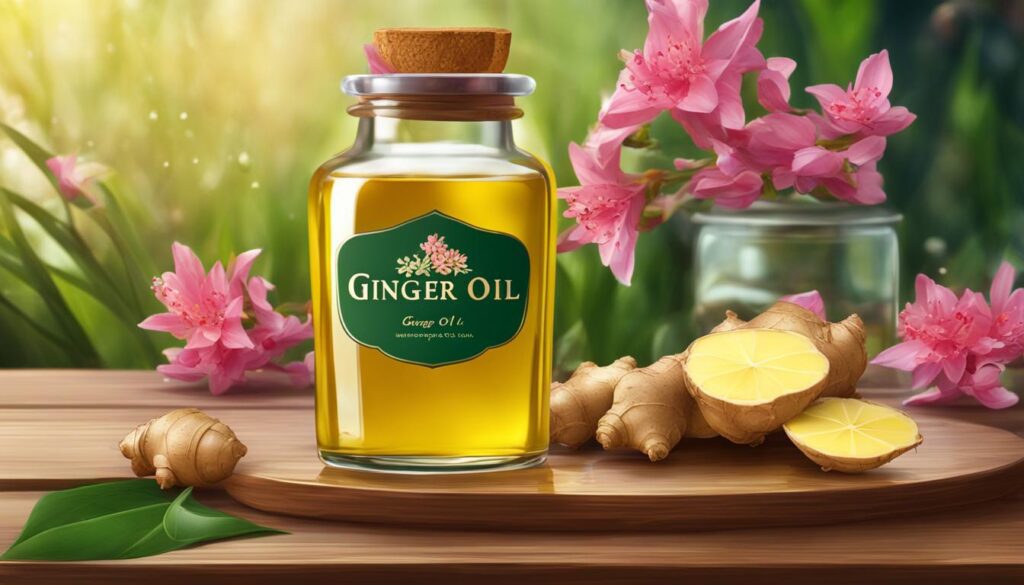
Table: Shelf Life and Country of Origin of Ginger Oils
| Type of Ginger Oil | Shelf Life | Country of Origin |
|---|---|---|
| Ginger Root CO2 Extract | 1-2 years | Varies (Sri Lanka, India, Germany, Indonesia, Nigeria) |
| Organic Ginger Root CO2 | 3-4 years | Varies (Sri Lanka, India, Germany, Indonesia, Nigeria) |
| Ginger Essential Oil | 1-2 years | Varies (Sri Lanka, India, Germany, Indonesia, Nigeria) |
Legal Disclaimer and Affiliation Information
I must emphasize that the information provided in this article is for educational purposes only and should not be considered medical advice. The statements regarding the benefits and uses of ginger oil have not been evaluated by the Food and Drug Administration.
Ginger oil is not intended to diagnose, treat, cure, or prevent any disease. It is crucial to consult a qualified medical professional before using ginger oil for any specific health condition.
This information is provided to make sure readers understand the limitations and legal context of the information provided in this article.
Always remember to exercise caution and seek professional guidance when incorporating ginger oil or any other essential oil into your plant therapy routine. Safety and individual health considerations should always be prioritized.
FAQ
What are the medicinal uses of ginger in plant therapy?
Ginger is commonly used in plant therapy to address stomach concerns such as bloating, cramps, nausea, and gas. It also promotes increased circulation, helps with joint and muscle discomfort, and provides relief from headaches and inflammation. Ginger can also be beneficial for skin concerns, nervous tension, and mental clarity.
What are the benefits of ginger essential oil in plant therapy?
Ginger essential oil is known for its therapeutic properties and is particularly beneficial for stomach and digestive issues, boosting circulation, relieving muscle discomfort, and promoting relaxation. It can also support a healthy immune system and provide a mental boost.
What are the different types of ginger oil for plant therapy?
Plant Therapy offers three types of ginger oils: Ginger Root CO2 Extract, Organic Ginger Root CO2, and Ginger Essential Oil. Each oil has its own unique characteristics and benefits.
How can ginger oil be incorporated into plant therapy routines?
Ginger oil can be added to a warm bath to stimulate circulation and provide relief from aches and pains. It can also be used in diffuser blends for car sickness or applied topically to the abdomen for cramp relief during menstruation.
What are the product details and safety information for ginger oil?
Plant Therapy offers Ginger Root CO2 Extract, Organic Ginger Root CO2, and Ginger Essential Oil. All oils are KidSafe, Pregnancy Safe, Nursing Safe, and Pup & Pony Safe. Safety precautions include diluting the oil, avoiding contact with eyes and mucous membranes, and using externally only.
What are the uses and effects of ginger essential oil in plant therapy?
Ginger essential oil is commonly used to calm upset stomachs, alleviate digestive issues, boost the immune system, relax muscles, and promote a sense of well-being.
What safety precautions and cautions should be taken when using ginger essential oil?
Ginger essential oil should be diluted in a carrier oil, kept out of reach of children, and discontinued if skin irritation occurs. It should not be taken internally without medical supervision and should be avoided contact with eyes and mucous membranes.
What is the shelf life, country of origin, and additional information about ginger oil?
The shelf life of ginger oils can vary, and they may come from countries such as Sri Lanka, India, Germany, Indonesia, or Nigeria. Ginger oils offered by Plant Therapy undergo third-party testing for purity and quality.
What is the legal disclaimer and affiliation information for ginger oil?
The statements made about ginger oil have not been evaluated by the FDA, and ginger oil is not intended to diagnose, treat, cure, or prevent any disease. Plant Therapy is not affiliated with the Child Accident Prevention Foundation of Australia or its branches.





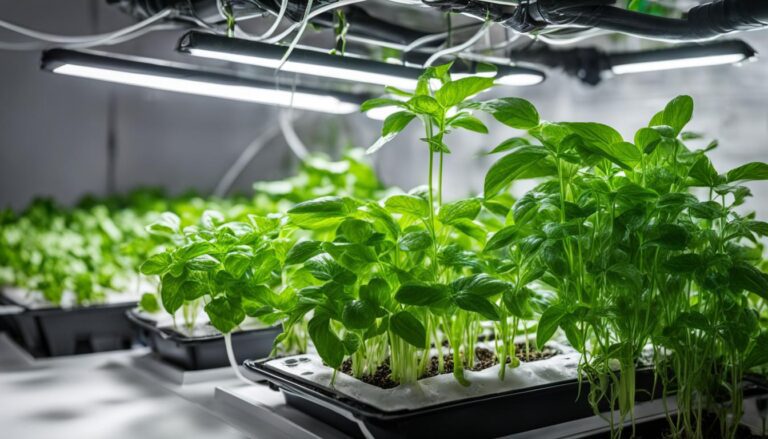
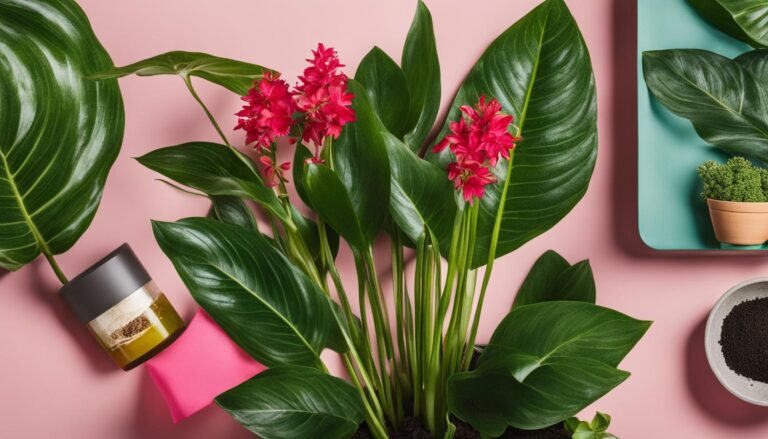
One Comment
Comments are closed.